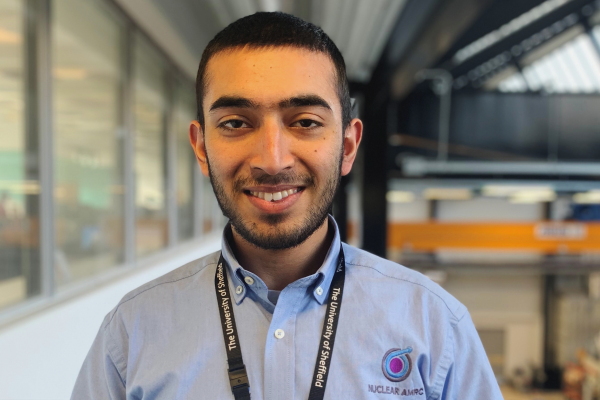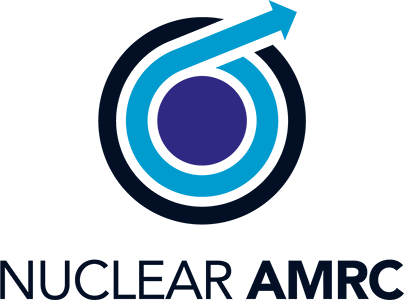Umar Farooq Khan is studying mechanical engineering at the University of Salford, and has just completed a year’s placement at the Nuclear AMRC as an assistant research engineer in the machining group. We asked him to share what he had learnt.

I applied to the placement opportunity on Gradcracker – although there wasn’t any strict grade requirement, it did require a level of engineering and research skills.
I got the place after going through an online application process and then a face-to-face interview in which I had to present on the current UK civil nuclear industry. Resilience, and research and communication skills are what I believe helped me get the placement.
I aspired to work at the Nuclear AMRC as the centre has some of the most highly advanced technologies in the world, like the Dörries vertical turning/milling lathe which is capable of working on parts up to five metres in diameter and three metres in height at spindle speeds of up to 14,250rpm. The Soraluce FX12000 is a large floor-type horizontal boring machine able to work on parts up to 12 metres in length and five metres in diameter, and is the only one in the world.
Moreover, the Nuclear AMRC is an organisation that falls within academia and industry, so it gives a taste of both worlds, which was a unique experience.
Having had very little engineering experience before this, my time at the Nuclear AMRC has improved me in every aspect, from interpersonal skills to engineering knowledge. I have learnt many engineering software packages, including 3D printing, and was exposed to internal and commercial projects which helped me to really put my theoretical knowledge into practice.
I have improved my leadership skills by being given the opportunity to lead team meetings, and have worked on multiple projects and tasks at the same time, which helped me improve my interpersonal skills. I have attended many seminars and lectures at the Nuclear AMRC, which helped me increase my awareness of the engineering world.
Most importantly, this placement has allowed me to see the gaps in my skills and technical knowledge, which I wouldn’t have learnt at university.
I have been very fortunate to have been given the opportunity to complete my training for First Aid for Mental Health. I have completed many online courses on programming and computational fluid dynamics. I have also had the opportunity to complete my training in design of experiments, been given the opportunity to experience virtual and augmented reality, have seen machining trials on different types of milling, turning, welding, robotic platforms, and finally have seen different coolant and lubrication technologies for the first time ever.
Due to having had very little exposure into the engineering world before this, everything in this placement year has been a challenge for me, every day – whether it be researching, report writing, using CAD and analysis software packages, or just general day-to-day life as an engineer.
It has been quite challenging to grasp so much in so little time, due to having only one or two years left before I enter into a full-time engineering job. I have had to learn all the necessities of working in an office, solving all types of problems – both engineering and non-engineering – in a very short space of time. Learning how to communicate professionally with project managers, engineers, contractors, line managers etc has been a great challenge.
Overall, this year in industry has been a great challenge and one in which I have strived to succeed every single day, from day one, with resilience.
Having learnt and most importantly experienced so much, and met so many highly qualified and kind people from throughout the whole organisation, has helped me tremendously in my development.
I will be taking every skill and bit of knowledge that I have gained from my year in industry into my future career in engineering.




